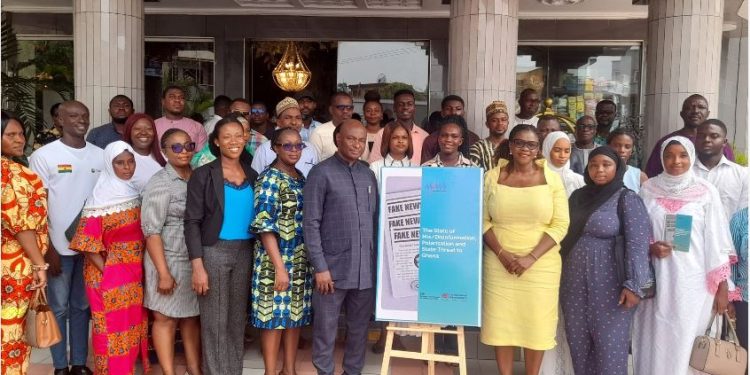The Media Foundation for West Africa (MFWA) has called on the Ghanaian government to take firm action against technology firms and media houses that enable the spread of misinformation, disinformation, and divisive narratives.
This appeal follows the launch of an MFWA study in Accra, which examined the growing prevalence of false and misleading content in Ghana’s media landscape. The study found that political actors, social media influencers, and some mainstream media outlets play a key role in disseminating misinformation, especially during election periods.
According to the report, while social media is the main platform for misinformation, some politically affiliated mainstream media outlets also spread hate speech and falsehoods with little accountability.
The study categorised misinformation and disinformation into four key areas:
- Political disinformation, which is widespread during elections.
- Religious disinformation, which fuels tensions between different faith groups.
- Economic disinformation, which has increased as Ghana moves towards a cashless economy.
- Scientific disinformation, including misleading health-related claims.
The research also revealed that some journalists fail to fact-check information before publication, further contributing to the problem.
To curb the spread of false information, the MFWA has recommended:
- Stronger regulations on social media platforms to detect and flag misleading content before it spreads.
- The establishment of fact-checking desks in newsrooms to ensure accurate reporting.
- Stricter enforcement of media laws to hold media outlets accountable.
- Community outreach programmes to educate the public on identifying misinformation.
- Collaboration among political parties, civil society, and religious groups to counter fake news and hate speech.
At the event, Kathleen Addy, Chairperson of the National Commission for Civic Education (NCCE), highlighted the growing threat of AI-generated misinformation and deepfakes. She warned that social media algorithms prioritise engagement over accuracy, making it easier for false content to go viral.
Mr Hooman Nouruzi, Head of the Political and Governance Team at the British High Commission, reaffirmed the UK’s commitment to strengthening Ghana’s democratic institutions by tackling misinformation.
He stressed that credible and independent journalism is essential for protecting public trust and preventing foreign interference through disinformation.
As Ghana heads toward another election cycle, the MFWA and other stakeholders are urging the government, media, and civil society to take decisive action to ensure that truth and accuracy remain central in public discourse.
Click the link Puretvonline.com | WhatsApp Channel to join the whatsapp channel
GOT A STORY?
Contact/WhatsApp: +233243201960 or Email: manuelnkansah33@gmail.com

